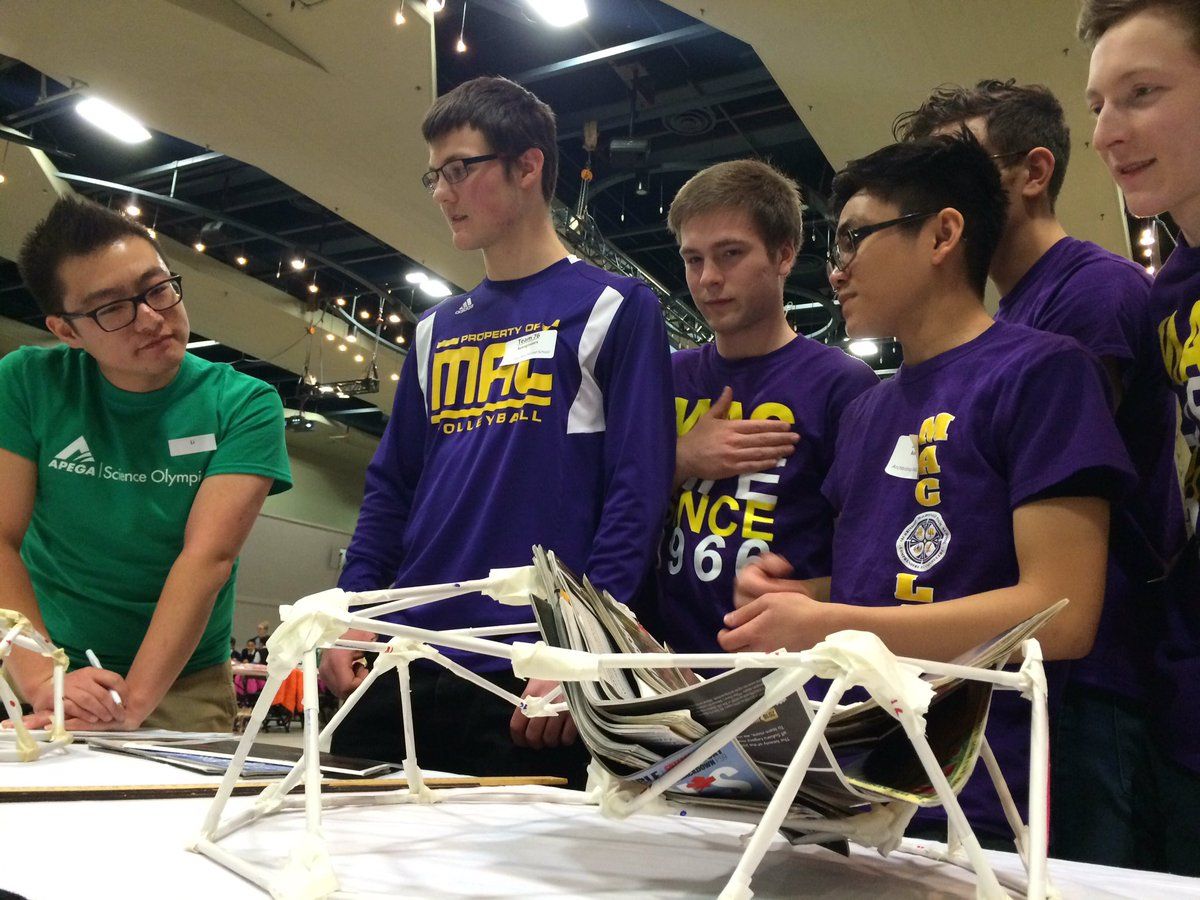Students from Edmonton and surrounding areas showed off their passion for science Saturday at an annual competition.

The Association of Professional Engineers and Geoscientists of Alberta (APEGA) held its annual Science Olympics in Edmonton.
The event featured Grade 1 to 12 students who put their creativity and science knowledge to the test by trying to turn everyday objects into engineering marvels and solving geoscience mysteries.
The competition has multiple division according to student’s grades.

Get daily National news
The teams who competed in division one were asked to build an aqueduct, with each team receiving the same amount and type of material.
“They have to build an aqueduct that goes from 30 cms down and we pour I think it’s a litre of water through it and however much water they get at the end…the more water they get at the end the better they have done,” said Elizabeth Walton, a coordinator with the APEGA Special Olympics.
Learning to work in a team environment was also part of the experience for students.
“We want them to collaborate. We want them to work together and work on their communication skills between their team members,” Walton said.
“We’ve seen some teams where they really struggle with that, so it’s a great opportunity for them to learn those skills because that’s something we can learn all through our lives.”
Walton said the event has evolved over the years.
“We’ve had so many different kinds of events and things that we’ve designed quite simply and really really super complex ones, so it’s really been a great experience.”
The hope is the event inspires participants towards a career in engineering and geosciences.


Comments
Want to discuss? Please read our Commenting Policy first.